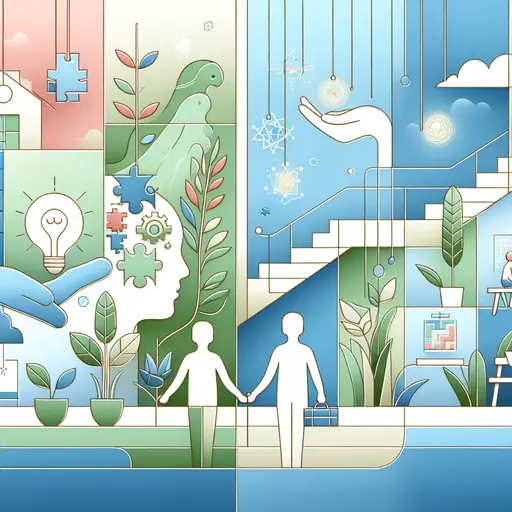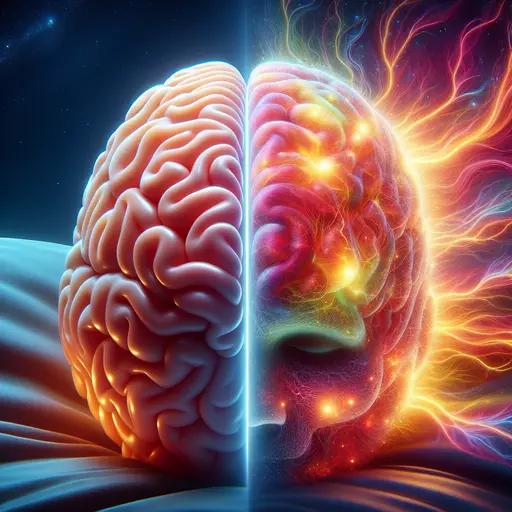Applying Child Development Theories in Real-Life Scenarios
Discover how applying child development theories can help in understanding and effectively responding to your child's behavior. Explore real-life scenarios where Jean Piaget's Cognitive Development Theory and Erik Erikson's Psychosocial Development Theory come into play.

As parents, we've all been there. The sleepless nights, the tear-streaked faces, the tantrums in the grocery store. It's in these moments, in the thick of parenting chaos, that we often wonder, 'Am I doing this right?' Applying child development theories to real-life situations could be your key to understanding and responding effectively to your child's behavior.
What are Child Development Theories?
Child development theories are intricate scientific concepts that seek to demystify and explain the multifaceted processes involved in the physical, emotional, and intellectual growth of a child. These theories, backed by rigorous and comprehensive research, delve deep into understanding how children develop skills, knowledge, and behaviors as they grow older.
These theories play a pivotal role in the field of psychology, serving as a foundation for psychologists to understand the developmental stages of a child. They are not just limited to the realm of psychology, but are also extensively used by educators, who implement these theories to create beneficial learning environments, tailoring teaching methods to suit the developmental needs of children. They help educators to understand the capabilities of a child at each stage, thus fostering better learning experiences.
Interestingly, these theories are not exclusively for professionals in the field. They are also very relevant and beneficial to parents. Parents apply these theories, consciously or unconsciously, to guide their interactions with children, understand their developmental milestones, and facilitate their child's overall growth and learning effectively.
Delving Deeper: How Can These Theories Apply in Real Life?
One of the most interesting aspects of studying child development theories is seeing how they play out in everyday situations. To make this exploration more engaging, let's consider some real-life scenarios where these theories come into play. We'll use two of the most widely recognized and respected child development theories: Jean Piaget's Cognitive Development Theory and Erik Erikson's Psychosocial Development Theory.
Understanding these theories not only helps professionals in the psychology and education fields, but it can also aid parents and caregivers in fostering a supportive environment for children's growth and development. It's fascinating to see how theoretical constructs translate into practical situations and how they can be employed to optimize a child's progression through different developmental stages.
Piaget's Cognitive Development Theory
The famous Swiss psychologist, Jean Piaget, revolutionized our understanding of children's cognitive development by introducing the concept of cognitive development stages. He proposed that as children grow and mature, they progress through four distinct and unique stages of cognitive development - namely the Sensorimotor stage, the Preoperational stage, the Concrete Operational stage, and the Formal Operational stage. This well-researched framework by Piaget not only provides insight into the mental processes of children but also guides parents and educators in fostering and nurturing their child's cognitive growth and development.
Each of these stages corresponds to a specific age bracket and is characterized by different learning behaviors and cognitive abilities. The theory goes into great detail on how children's minds develop during each stage, their cognitive capabilities, and how they perceive and interact with their environment.
For instance, during the first stage, the Sensorimotor stage which spans from birth to around 2 years, your child primarily learns about the world through physical interactions and sensory experiences. Trial and error also play an essential role in their learning. So, the next time you see your child knocking over a stack of blocks, beating a drum, or even just playing with their food, remember that it's not merely about creating a mess. Instead, it's a valuable learning experience and an integral part of their cognitive development! They are exploring cause and effect, understanding object permanence, and developing their problem-solving skills in their own unique ways.
As we delve deeper into Piaget's theory, we understand that cognitive development is not just an organic process; it is also a product of the child's active participation in their environment. Therefore, providing a stimulating environment full of opportunities for exploration can greatly enhance a child's cognitive development.
Erik Erikson's Psychosocial Development Theory
The renowned psychologist Erik Erikson formulated the idea that all individuals, throughout the span of their lives, encounter a series of psychosocial crises. Each of these crises plays a pivotal role in shaping the individual's personality as they grow and evolve. For children, these crises are closely linked to key developmental aspects such as trust, autonomy, initiative, and industry.
Erikson's theory is one of the most widely accepted views of psychosocial development and has greatly influenced our understanding of personality formation. His model outlines eight distinct stages, each marked by a specific crisis that contributes to a major aspect of personality development.
For example, consider the crisis of Autonomy vs. Shame and Doubt, which typically takes place from ages 2-3. During this stage, your toddler may insist on accomplishing tasks by themselves, such as dressing up. This could result in mismatched socks or inside-out shirts. As a parent or caregiver, you might initially feel frustrated. However, it's important to understand that this is the child's way of asserting their independence. They are taking crucial steps in their psychosocial development.
This stage is integral for autonomy building and self-confidence. It’s during this milestone when children begin to understand that they can control their actions and make choices. So, while the insistence on dressing themselves or feeding themselves may result in a bit of chaos and mess, it's an important part of their journey towards developing a sense of personal autonomy.
Erikson's theory is not just a roadmap for understanding the developmental stages of a child, but it also provides invaluable insights into the challenges that individuals face at different stages of their life. By understanding the key principles of this theory, caregivers and educators can provide the necessary support and guidance for children as they navigate these crucial stages of psychosocial development.
The Benefits of Applying Child Development Theories
Applying child development theories to real-life scenarios may not completely eliminate the challenges you face as a parent, but they certainly can make a significant difference. These theories are not foolproof formulas for seamless parenting; instead, they serve as enlightening guides that can help you navigate the complex world of child upbringing.
A careful study and understanding of these theories can give you invaluable insights into why children behave the way they do. Armed with this knowledge, you will be better equipped to comprehend the underlying causes of their actions. This understanding can lead to you responding more empathetically and patiently to their behavior, which ultimately strengthens the bond between you and your child.
Moreover, applying these theories can also help you tailor your parenting style to suit your child's unique personality and needs, thereby ensuring their holistic development. It's like having a roadmap that directs you on how to foster a nurturing environment that promotes your child's emotional, intellectual, and social growth.
Remember, the goal here is not to achieve perfection in parenting but to understand and support your child's developmental journey. These theories provide you with the tools to do exactly that. So, delve into the fascinating world of child development theories and see how they can revolutionize your parenting approach.
Wrap Up
Remember, every child is unique, and these theories are not strict roadmaps but rather guides to understanding your child's developmental journey. By applying these theories to your everyday parenting, you can create a nurturing environment that supports your child's growth and learning.
🌿
Category: Family & Relationships
Join the community
Related Articles

Vygotsky's Cognitive Development Theory Demystified
Every parent, teacher, and health enthusiast has pondered th...

What Sleep Deprivation Does to the Brain
Perhaps you've had those days where you've survived on just ...

The Role of Minerals in Rock Formation
Welcome to another enlightening article on HeavenRelax.com, ...
Latest Articles

What Sleep Deprivation Does to the Brain
Perhaps you've had those days where you've survived on just ...

The Role of Minerals in Rock Formation
Welcome to another enlightening article on HeavenRelax.com, ...

The Importance of Patience in Our Life
In this fast-paced world we live in, patience is often seen ...
Comments
No comments yet. Be the first to comment!